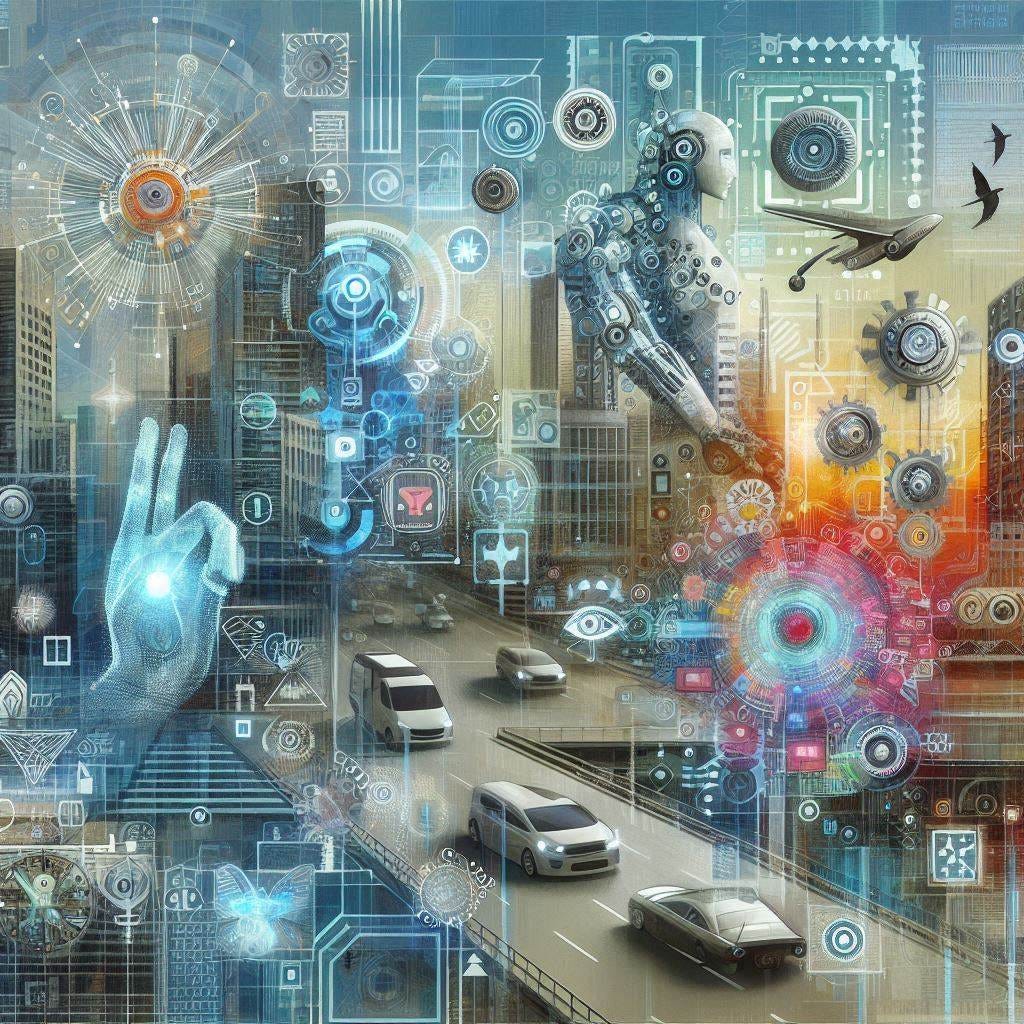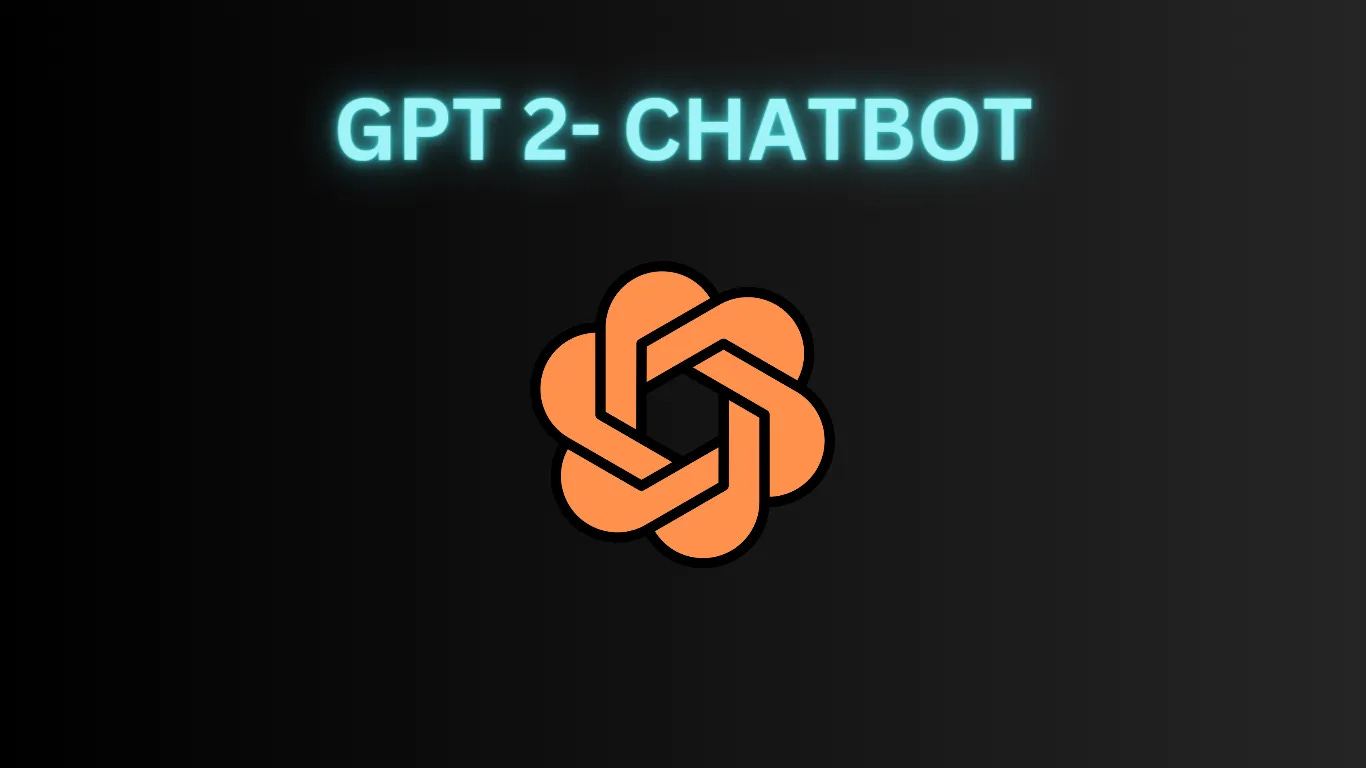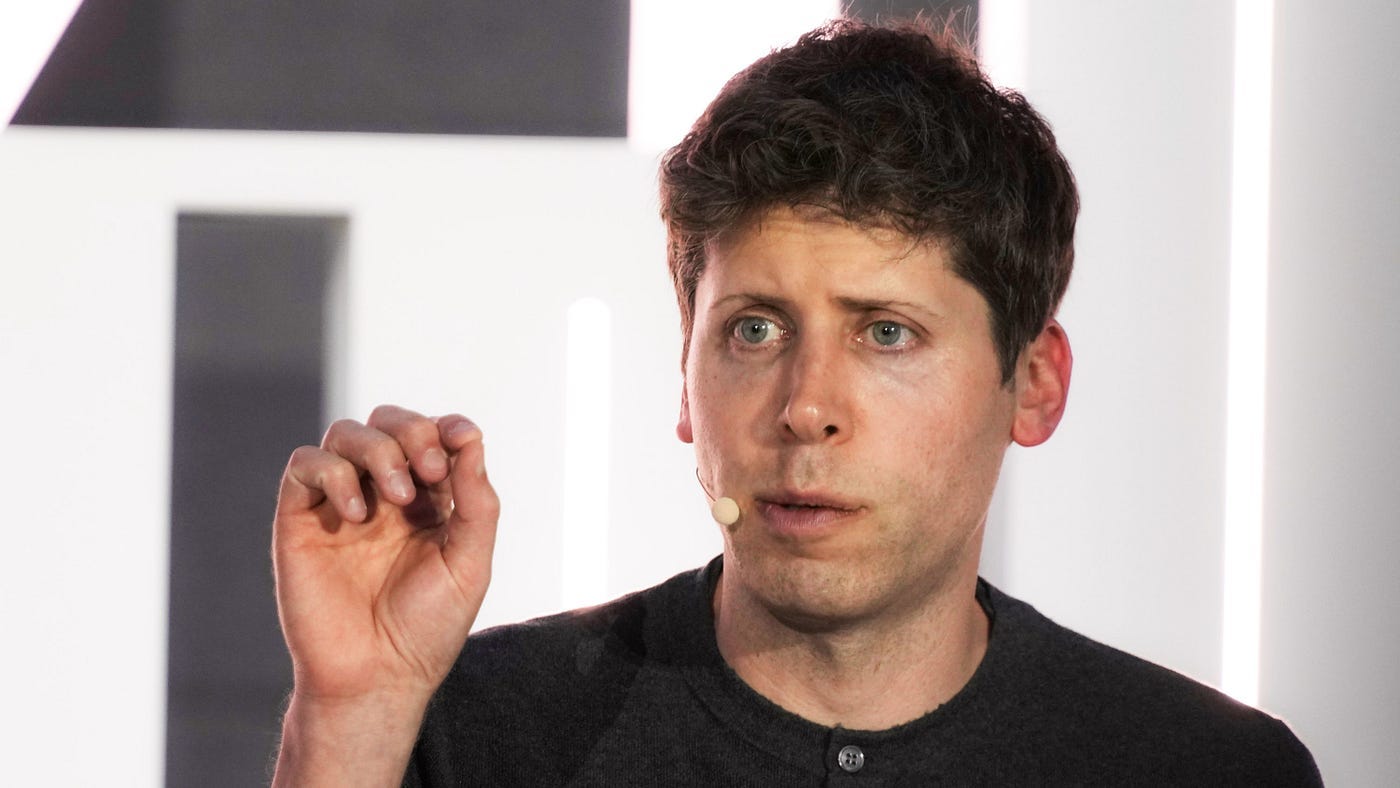AI News Roundup: Mysterious ChatBots, OpenAI Updates, and Futuristic Innovations
The Future is Now: Exploring the Cutting-Edge and the Enigmatic in AI
The world of artificial intelligence has been abuzz with exciting developments, mind-boggling breakthroughs, and a touch of mystery. From enigmatic chatbots outperforming their predecessors to cutting-edge advancements in language models and search engines, the AI landscape is rapidly evolving. Join us as we delve into the latest news, updates, and speculations that have captivated the AI community.
The Mystery of the GPT2-Chatbot
One of the most intriguing stories to emerge this week was the appearance of a mysterious chatbot called "GPT2-Chatbot" on the website ChatbotArena. This large language model seemed to outperform even the most advanced AI models like GPT-4 and Claude, leaving researchers and enthusiasts scratching their heads.
Unlike the conventional naming conventions used by OpenAI, this model sported the unusual moniker "GPT2-Chatbot," without the customary dash or number. Interestingly, no company has stepped forward to claim ownership or responsibility for developing this powerful language model.
Ethan Mollick, a professor at Wharton who studies AI innovation and startups, shared his thoughts on the matter: "There's a mysterious new model called GPT2-Chatbot accessible from a major LLM benchmarking site. No one knows who made it or what it is, but I've been playing with it a little, and it appears to be in the same rough ability level as GPT-4."
Mollick provided examples of prompts he tested, and the results were impressive. Additionally, Andrew G claimed that the GPT2-Chatbot successfully solved an International Math Olympiad problem in a single shot, while Dr. Alvaro Cintas demonstrated its ability to code a simple Snake game on the first try – a feat that even GPT-4 might struggle with.
The speculation surrounding this enigmatic model is rife, with some suggesting that it could be a new version of GPT-4 or a variant trained on updated data. However, Sam Altman, the CEO of OpenAI, recently stated at Harvard that the mystery bot is not GPT-4.5, further fueling the intrigue.
As of now, the identity and origins of the GPT2-Chatbot remain a mystery, but its impressive performance has undoubtedly sent shockwaves through the AI community, leaving us eagerly awaiting further developments.
OpenAI's ChatGPT Memory and Search Engine Rumors
On the OpenAI front, the company has finally rolled out the much-anticipated memory feature for ChatGPT to all Plus users, approximately two and a half months after its initial announcement. This feature allows users to log into their ChatGPT account, provide personal information, and instruct the model to remember specific details, which are then saved to its memory.
Users can easily manage and delete stored memories through the Personalization settings, ensuring control over the information shared with the AI assistant. Additionally, OpenAI has introduced a "temporary chat" mode, which prevents the model from remembering any details or using the conversation for training purposes, offering an incognito-like experience.
Rumors are also circulating about OpenAI's potential foray into the search engine market. According to reports, OpenAI is nearing the launch of its own search engine, with SSL certificate logs revealing the creation of search.chatgp.com. Allegedly, Microsoft Bing would power this service, posing a significant threat to Google's dominance in the search domain.
Pete Huang from Neuron AI suggested that the search engine might launch on May 9th, citing a comment made by Sam Altman on the Lex Fridman podcast: "The intersection of large language models plus search – I don't think anyone has cracked that code yet. I would love to go do that. I think that would be cool."
If these rumors prove true, OpenAI's entry into the search engine market could shake up the industry and provide a compelling alternative to existing players.
Apple's AI Aspirations and Sam Altman's Stanford Talk
Amidst the flurry of OpenAI news, reports emerged about Apple intensifying talks with OpenAI to incorporate the company's technology into future smartphones. However, Apple has also been in discussions with Google about potentially using the Gemini model, suggesting that the tech giant is exploring various options to power the AI features in upcoming iOS versions.
Speculations are rife that Apple may announce a revamped version of Siri with enhanced AI capabilities at this year's Worldwide Developers Conference (WWDC).
In a separate development, Sam Altman delivered a talk at Stanford University, providing insights into the future of AI. One of the most noteworthy statements he made was about GPT-4, referring to it as "the dumbest model any of you will ever ever have to use again by a lot." Altman expressed embarrassment about shipping a product like GPT-4 but acknowledged the importance of iterative deployment in the AI field to avoid surprising or overwhelming people.
When asked about GPT-5, Altman hinted that the upcoming model would be significantly smarter and capable of providing better answers, further fueling excitement among AI enthusiasts.
Cutting-Edge AI Innovations
Beyond the news and updates from tech giants, the AI community witnessed several groundbreaking innovations and advancements this week.
Synthetic Media: The first-ever music video generated entirely with OpenAI's Sora made its debut, showcasing the impressive capabilities of AI in creating synthetic media. While some animation quirks were evident, the overall visual quality was remarkable.
Chinese AI Video Tool: China unveiled a new AI video tool called "VDU," which generates realistic human movements and animations. While not quite at the level of Sora yet, VDU's advancements are noteworthy and could potentially fuel competition in the synthetic media space.
GitHub Copilot Workspace: GitHub announced the GitHub Copilot Workspace, a collaborative AI-powered coding environment that allows developers to generate code based on prompts and plans. This tool holds the potential to revolutionize the software development process, enabling live previews, collaborative coding, and streamlined workflows.
Autonomous Vehicles and Security Systems: DARPA released a video showcasing "RACER," an autonomous vehicle capable of rapid and agile movements, hinting at the future of robotic warfare. In a more unorthodox application, a paintball-shooting security camera system emerged, using AI and computer vision to identify intruders and deter them with non-lethal projectiles.
AI Voice Cloning and Legal Implications: A teacher was arrested for using AI voice cloning technology from ElevenLabs to create racist rants impersonating another teacher, highlighting the legal complexities surrounding such deepfake technology.
Photoshop's Generative Capabilities: In a lighthearted moment, a viral video showcased Photoshop's generative fill feature hilariously replacing a rock in a wedding photo with a baby, reminding us of the unpredictable and sometimes amusing nature of AI.
AI Community Livestream
To foster collaboration and discussion within the AI community, a group of AI YouTubers, including Matthew Burman, Eigor Pogoy from AI Advantage, Tim from Theoretically Media, Matt VidPro, and BCloud, launched a new initiative called "AI Community." This channel hosts bi-weekly livestreams featuring rotating casts of AI creators, offering a platform for insightful conversations and knowledge sharing.
As the field of artificial intelligence continues to evolve at an unprecedented pace, we can expect more groundbreaking advancements, thought-provoking discussions, and a fair share of surprises. Stay tuned for the latest updates, innovations, and revelations that are sure to shape the future of AI and its impact on our world.






